A Review of Treatment in Non-small-cell Lung Cancer
Abstract
Overview
Non-small-cell lung cancer (NSCLC) accounts for approximately 85% of all lung cancer cases. For patients with early-stage disease, surgery followed by adjuvant chemotherapy is the optimal treatment. For patients with locally advanced disease, the standard approach is chemoradiotherapy, since it offers a small but statistically significant prolongation in survival compared with the sequential approach. It should be noted, however, that this approach is associated with significant toxicity and it only applies to patients with good performance status. For patients with metastatic disease, chemotherapy represents the cornerstone of treatment and results in a median survival of approximately 10 months. Recently, the addition of bevacizumab or cetuximab to chemotherapy doublets and the use of gefitinib and erlotinib has improved the outcome in selected patients with advanced NSCLC. Hopefully, advances in understanding the molecular biology of cancer and mechanisms of tumourigenesis will facilitate the discovery and development of novel ‘targeted agents’ and will further improve outcomes for these patients.
Article
Further Resources
2. Share This

Trending Topic
It is with great pleasure that we present the latest edition of touchREVIEWS in Oncology & Haematology. This issue highlights the remarkable progress and innovation shaping the fields of oncology and haematology, featuring articles that delve into both emerging therapies and the evolving understanding of complex malignancies. We open with an editorial by Mohammad Ammad […]
Related Content in Lung Cancer
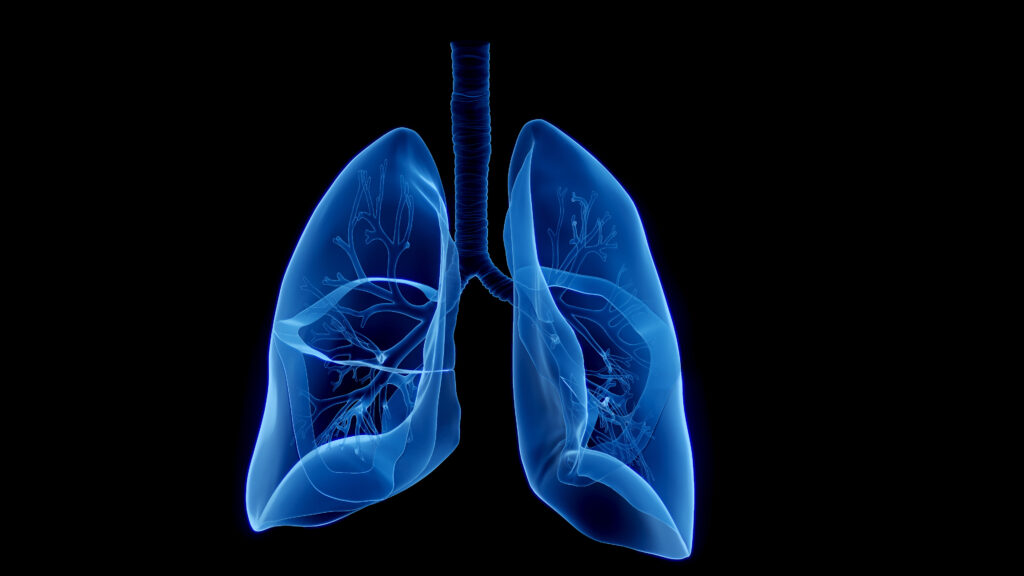
Highlights Immunotherapy, especially combinatory immunotherapy, has shown promise with prolonged survival for patients with advanced mesothelioma in the first-line setting (see the sections on ‘Systemic treatment and immunotherapy debut’ and ‘Randomized immunotherapy trials of mesothelioma’). Histology-based therapy is important to ...

Welcome to the latest issue of touchREVIEWS in Oncology & Haematology. We are honoured to present a series of compelling articles that reflect cutting-edge developments and diverse perspectives in this ever-evolving field. This issue includes a series of editorials and ...
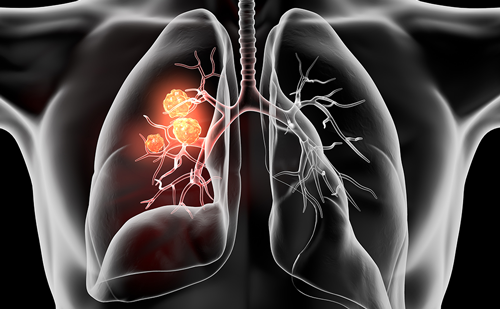
Unmet clinical needs for patients with advanced epidermal growth factor receptor-mutated non–small-cell lung cancer Epidermal growth factor receptor (EGFR)-tyrosine kinase inhibitors (TKIs) have become the standard first-line therapy for patients with advanced non–small-cell lung cancer (NSCLC) harbouring ...

Accurately detecting lung tumours and their margins is important for disease outcomes.1,2 However, detection is challenging due to the use of minimally invasive surgery and current localization techniques, such as computed tomography (CT)-guided and endobronchial interventions, which add significantly ...
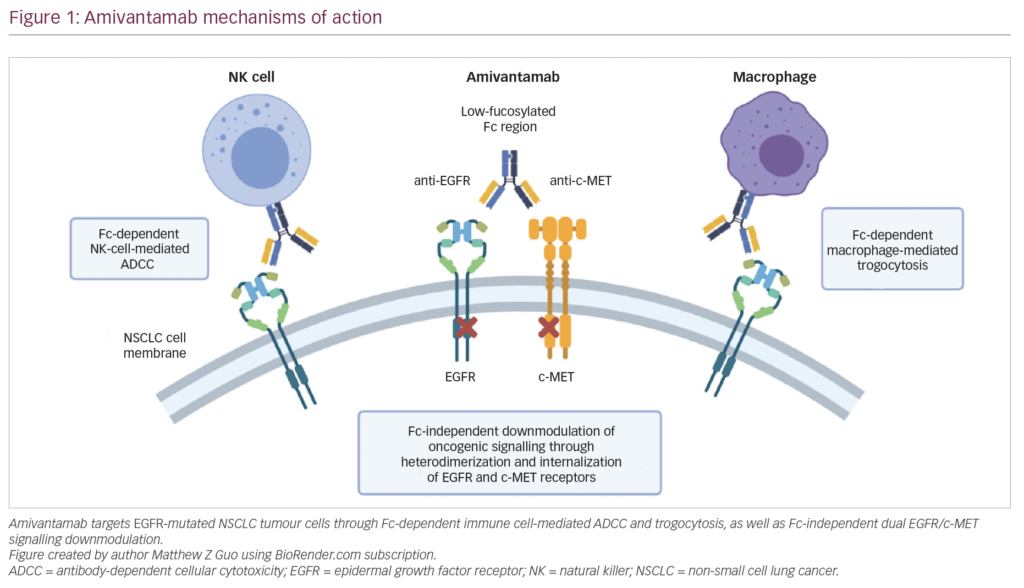
Cancer treatment has expanded rapidly in recent years as advancements in the fields of tumour biology and molecular diagnostics have informed the development of targeted therapies, improving survival in patients with oncogene-addicted cancers with therapeutically relevant molecular lesions. Osimertinib has ...
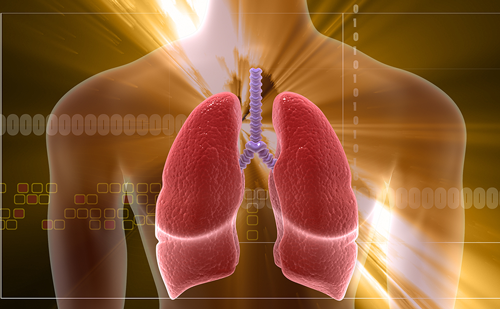
The treatment of patients with non-small cell lung cancer (NSCLC) has seen significant advances in the past decade, with the availability of multiple targeted therapy agents for oncogenic-driven non-squamous NSCLC and the advent of immunotherapy that has completely revolutionized the ...
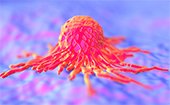
Advanced non-small cell lung carcinoma (NSCLC) treatment paradigms have evolved during the past decade. Identification of tumor-specific molecular alteration in cancer driver genes has led to the development of targeted therapies.1–3 Most of the tumors harboring such alterations are sensitive ...

Radiation-induced esophagitis, caused by incidental damage to the mucosal lining of the esophagus during radiation therapy, is a common and clinically important toxicity in patients with lung cancer. Esophagitis generally develops 2–3 weeks after initiation of radiation therapy and presents as ...
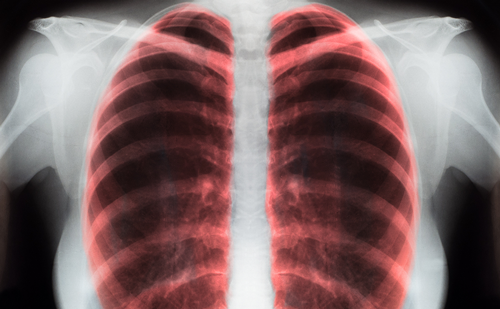
Historically, chemotherapy represented the only available treatment for patients with advanced non-small-cell lung cancer (NSCLC) who did not show any target molecular driver, such as epidermal growth factor receptor (EGFR), anaplastic lymphoma kinase (ALK) or the receptor tyrosine kinase ROS1. ...

At initial diagnosis of metastatic disease, central nervous system (CNS) metastases are present in 22–33% of patients with anaplastic lymphoma kinase (ALK)-rearranged (ALK+) non-small cell lung cancer (NSCLC). After crizotinib failure, the incidence can reach up to 70%, compared with 40% in ...
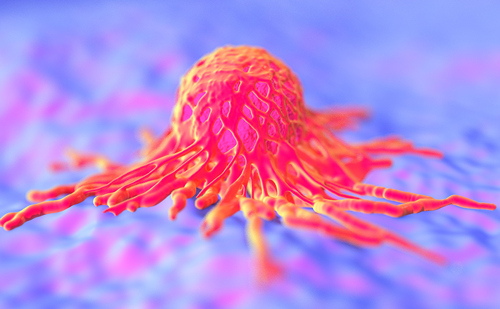
Non-small cell lung cancer (NSCLC) remains a world-wide health issue, accounting for 85% of all lung cancers, of which there were an estimated 2.1 million new cases and 1.76 million deaths in 2018; equivalent to 11.6% of the global cancer burden.1,2 This incidence is expected ...

Welcome to the fall edition of Oncology and Hematology Review (US), which features a wide variety of articles covering topics of interest to oncologists and hematologists, as well as the wider medical community. We begin with some expert interviews, which ...
Latest articles videos and clinical updates - straight to your inbox
Log into your Touch Account
Earn and track your CME credits on the go, save articles for later, and follow the latest congress coverage.
Register now for FREE Access
Register for free to hear about the latest expert-led education, peer-reviewed articles, conference highlights, and innovative CME activities.
Sign up with an Email
Or use a Social Account.
This Functionality is for
Members Only
Explore the latest in medical education and stay current in your field. Create a free account to track your learning.

